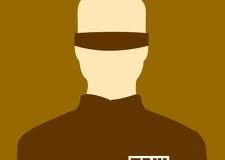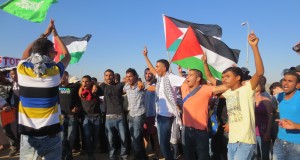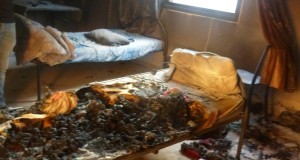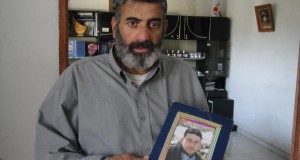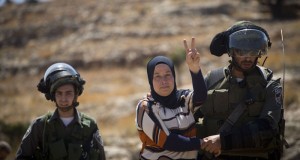9th August 2013 | Friends of Freedom and Justice | Bil’in, Occupied Palestine Resistance in Bil’in continued on the second day of the Eid Al Ftir holiday, in solidarity with Palestinian prisoners in their hunger strike. One female activist was arrested ...
Read More »Anxious Eid for family of prisoner in Hebron
8th August 2013 | International Solidarity Movement, Khalil Team | Hebron, Occupied Palestine For one Hebron family, this year’s Eid is more worrisome than festive. They will have to spend it wondering about their father and husband, whom they have ...
Read More »UPDATED: Four arrested at Nabi Saleh’s weekly protest
3rd August 2013 | International Solidarity Movement, Ramallah Team | Nabi Saleh, Occupied Palestine Update 3th August: The fourth Israeli activist was released this morning at 5am. ******* On Friday August 2, Israeli Border Police aggressively attacked protesters marching in ...
Read More »Updated: ‘Day of rage’ against Prawer Plan met with violent repression and over ten arrests
2nd August 2013 | International Solidarity Movement, Ramallah Team | Palestine Update 2nd August: The Palestinian activist arrested at the protest near Hizma checkpoint has been released after paying 3000NIS. All arrestees at the demonstration in Wadi Ara have also ...
Read More »Student apartments burnt during Israeli military invasion of Nablus
12th July 2013 | International Solidarity Movement, Nablus Team | Nablus, Occupied Palestine In the early hours of Wednesday the 10th of July, the Israeli army, arriving from the military camp near the settlement of Qedumim (8km west of Nablus) ...
Read More »Video – Father and 5-year-old son illegally detained in occupied Hebron
9th July 2013 | International Solidarity Movement, Khalil Team | Hebron, Occupied Palestine On July 9th at around 4pm in occupied Hebron, Israeli soldiers arrested and held a five-year-old boy in their military base along with his father. They kept ...
Read More »Ten homes invaded, three arrested in night invasion of Talfit
8th July 2013 | International Solidarity Movement, Nablus Team | Talfit, Occupied Palestine In the early hours of Wednesday 3rd of July, the Israeli army conducted a large scale incursion into the northern West Bank village of Talfit, invading and ...
Read More »Settlers lead the Israeli army into a night attack in Jinba: beating children aged 4 to 16
5th July 2013 | International Solidarity Movement, Khalil Team | Jinba, Occupied Palestine On Wednesday night, the Israeli army carried out a lengthy and violent invasion of the village of Jinba, in Masafer Yatta, south of the West Bank. The ...
Read More »Arrested at Nabi Saleh, Rana Nazzal speaks out for Palestinian political prisoners
4th July 2013 | International Solidarity Movement, Ramallah Team | Ramallah, Occupied Palestine On the 28th of June 2013 two Palestinian activists were arrested in the village of Nabi Saleh during the village’s Friday demonstration. Both are currently released on ...
Read More »UPDATED: Three arrests at Nabi Saleh demonstration against occupation
28th June 2013 | International Solidarity Movement, Ramallah Team | Nabi Saleh, Occupied Palestine Update 10th July: The military judge decided on house arrest for Nariman Tamimi. She will have to stay at home every Friday until the next court ...
Read More » International Solidarity Movement Nonviolence. Justice. Freedom.
International Solidarity Movement Nonviolence. Justice. Freedom.
